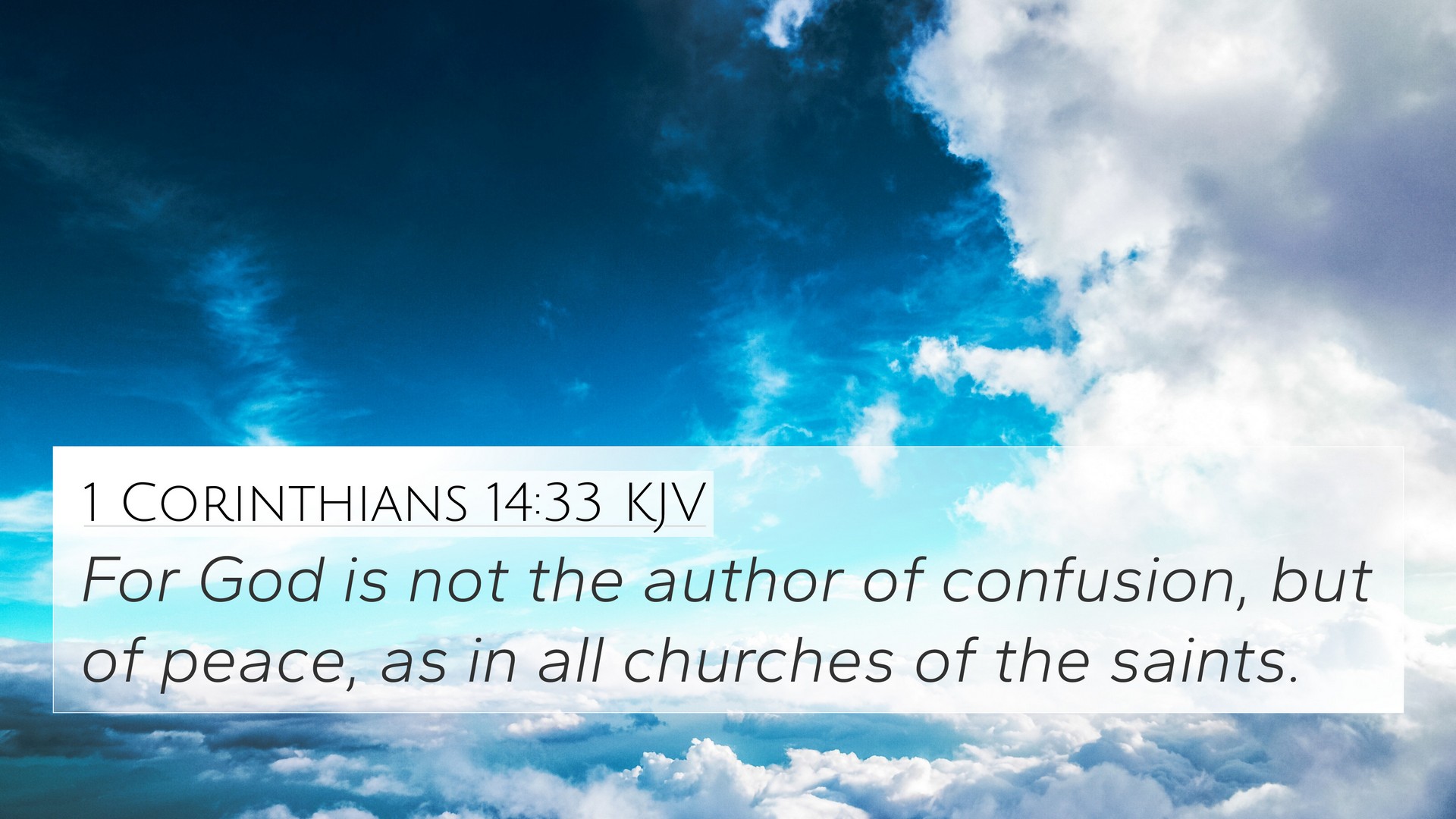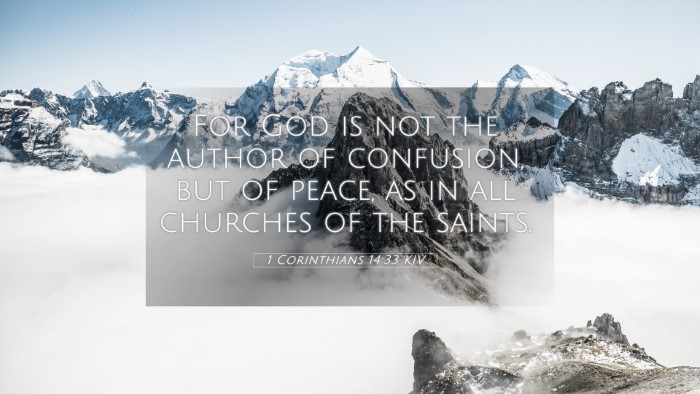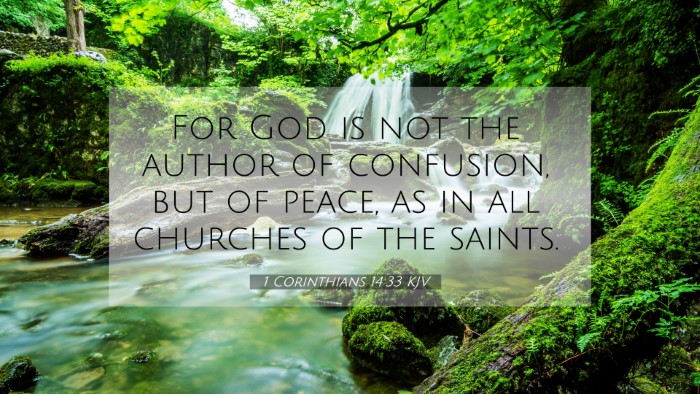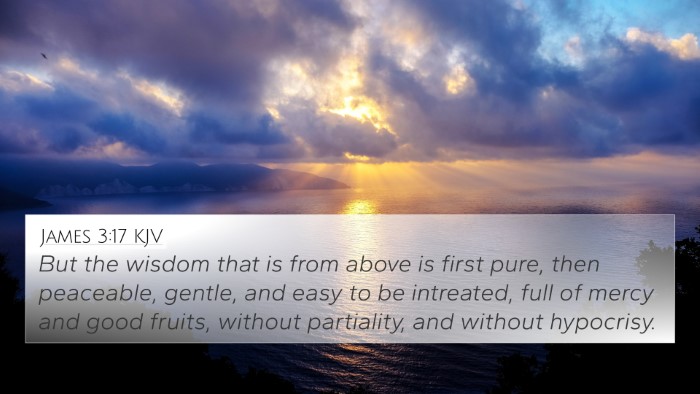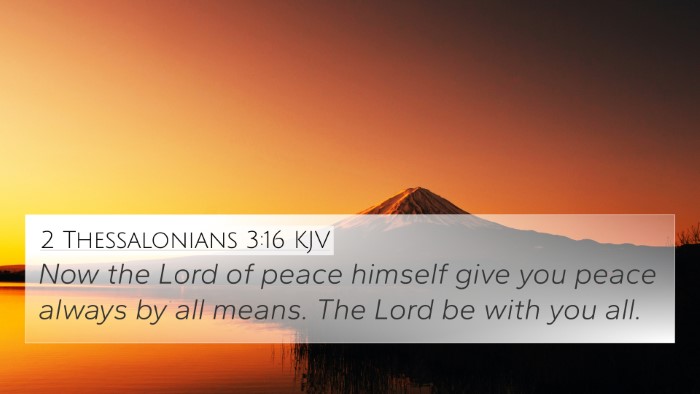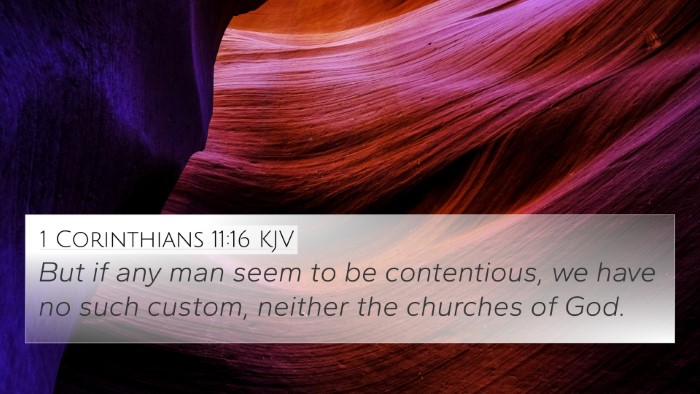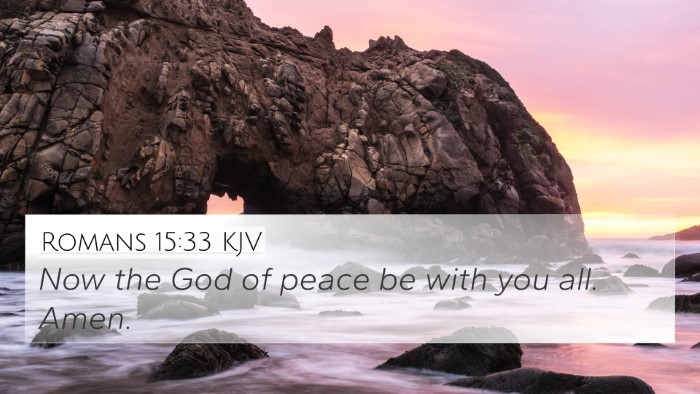Understanding 1 Corinthians 14:33
Verse: 1 Corinthians 14:33: "For God is not the author of confusion, but of peace, as in all churches of the saints."
Verse Meaning Summary
This verse emphasizes the nature of God as one who brings order and peace rather than chaos and confusion. In 1 Corinthians 14, the Apostle Paul addresses issues of disorder in worship, urging the Corinthian church to engage in practices that foster unity and clarity.
Commentary Insights
-
Matthew Henry: Henry points out that this verse highlights the distinction between divine and human practices. He stresses that in the context of the church, everything should be done decently and in order, reflecting God's character. Henry also mentions that just as God promotes peace among the churches, believers should strive to avoid division and confusion in their worship.
-
Albert Barnes: Barnes interprets this verse as a reaffirmation of God's intentions. He notes that the peace mentioned here is not just tranquility but a deep, spiritual harmony that should characterize the church's gatherings. According to Barnes, the verse serves as a reminder for the church to align its practices with God's will to avoid disorderly worship.
-
Adam Clarke: Clarke focuses on the implications of God's role in church governance. He emphasizes that where disorder reigns, it is contrary to God's character, which should lead believers to carefully examine their practices. Clarke also connects this verse to the wider context of the New Testament teachings on unity, contributing to a holistic understanding of church behavior.
Cross-References
To further illuminate the context of 1 Corinthians 14:33, several relevant cross-references highlight similar themes of order, peace, and unity in the church.
- James 3:16-18: This verse discusses the contrast between earthly wisdom, which leads to disorder, and heavenly wisdom, which promotes peace.
- 1 Corinthians 14:40: Paul explicitly states, "Let all things be done decently and in order," reinforcing the idea of structure in worship.
- 1 Timothy 2:1-2: Here, Paul teaches that prayers should be made for rulers and all in authority so that we may lead a quiet and peaceable life.
- Philippians 4:7: This verse speaks of the peace of God that surpasses all understanding, which guards our hearts and minds.
- Colossians 3:14: Emphasizes harmony among believers, stating that love binds everything together in perfect unity.
- Ephesians 4:3: Encourages believers to make every effort to keep the unity of the Spirit through the bond of peace.
- Romans 14:19: Suggests pursuing the things that make for peace and build up one another, directly related to maintaining order within the community.
- John 14:27: Jesus speaks of His peace, which He gives to His disciples, distinct from the world's peace.
- 2 Corinthians 13:11: Paul closes his letter with an exhortation to comfort one another, reinforcing the call for peace and unity.
- Hebrews 12:14: Urges believers to pursue peace with everyone and holiness, as vital to their walk with God.
Connections between Bible Verses
In exploring the connections between various verses, one observes that 1 Corinthians 14:33 acts as a thematic link in a broader dialogue concerning God's nature and the expectations for the community of believers. Many verses in the New Testament echo the central theme of peace which God desires for His people, inviting a deeper comparative Bible verse analysis.
- Connections between Old and New Testament teachings can be identified by examining the continuity of God’s desire for order, such as in Psalm 119:165, where it says, "Great peace have those who love your law; nothing can make them stumble."
- The relationship between Pauline epistles emphasizes Paul's consistent message about the fruits of the Spirit and the peace that ought to characterize a believer's life, as seen in Galatians 5:22-23.
- Establishing links between the teachings of the Prophets and Apostolic teachings reveals a unified approach to divine guidance leading to peace, illustrated in Isaiah 26:3 which states, "You keep him in perfect peace whose mind is stayed on you because he trusts in you."
Tools for Bible Cross-Referencing
For those interested in studying the connections between Bible verses more thoroughly, several resources and tools can aid in exploring these themes:
- Bible Concordance: A comprehensive index of words and phrases that also assists in finding verses related to similar themes.
- Bible Cross-Reference Guide: This helps identify parallel verses and themes across both the Old and New Testaments.
- Cross-Reference Bible Study: Methods and tools for integrating cross-referencing into your daily study.
- Bible Reference Resources: Various digital and print resources providing access to thematic connections.
Conclusion
1 Corinthians 14:33 serves as a poignant reminder of God's commitment to order and peace in the church. By utilizing tools for Bible cross-referencing, believers can deepen their understanding of scripture and its interconnectedness, enriching their spiritual lives. Cross-referencing Bible verses opens the door to insightful examination, bridging gaps between different texts and drawing out a more comprehensive picture of God's intentions for His people.
